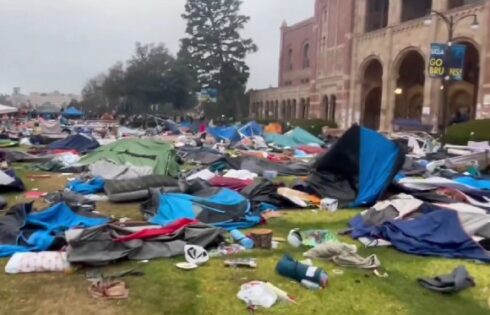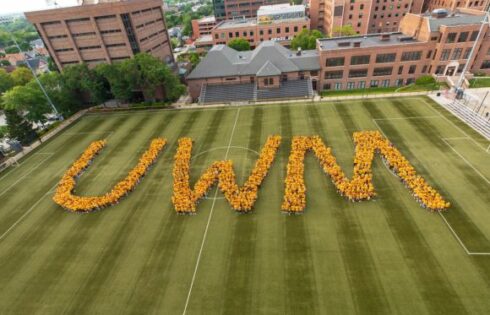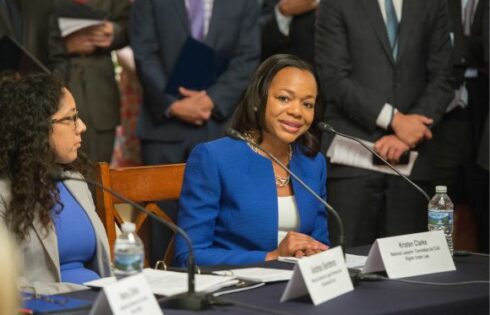
Weekend WikiLeaks drama was in no short supply, as website after website shut down Julian Assange, and U.S. officials stepped up demands for his capture. One of the more interesting developments was this:
Talking about WikiLeaks on Facebook or Twitter could endanger your job prospects, a State Department official warned students at Columbia University’s School of International and Public Affairs this week.
An email from SIPA’s Office of Career Services went out Tuesday afternoon with a caution from the official, an alumnus of the school. Students who will be applying for jobs in the federal government could jeopardize their prospects by posting links to WikiLeaks online, or even by discussing the leaked documents on social networking sites, the official was quoted as saying.
“[The alumnus] recommends that you DO NOT post links to these documents nor make comments on social media sites such as Facebook or through Twitter,” the Office of Career Services advised students. “Engaging in these activities would call into question your ability to deal with confidential information, which is part of most positions with the federal government.”
Thank goodness, because the last thing we would want from students is for them to think critically about the super powerful–dare I say evil–organization they may one day work for. I mean, it’s not as if students in the School of International and Public Affairs should be talking about the revelation that the U.S. government has been spying on UN officials, in violation of international law, or that leaders in the Middle East are colluding to provoke a war with Iran.
I can picture SIPA students in their discussion sections this week:
Student A: “Did you read the WikiLeaks cables?”
Student B: “Yes! They were very interesting and relevant.”
Student C: “Especially to us students in the School of International and Public Affairs, being that the WikiLeaks cables are both international and public!”
And then the professor shuts them up, because questioning the government isn’t encouraged at Columbia. Wouldn’t want to cost any enterprising students their shot at making this list of just awesome people.
In all seriousness, it isn’t surprising that someone at the State Department is recommending that students censor themselves. Tons of federal workers have been given a similar warning, for one thing. But no matter how you look at it, this is just what the government does. The people who run it–politicians, bureaucrats, military–thrive on secrecy, chest-thumping, and inflated senses of self-importance. They want to keep playing a global Risk game with people’s lives, and they don’t want the citizens to know about it. This is as true now as it was forty years ago when the New York Times published the Pentagon Papers, revealing that president after president had lied about the Vietnam War.
But while the government has long been in the habit of aggressively pursuing censorship to cover up its reckless, criminal actions, universities should hardly be expected to join in with the thought-policing. On the contrary, institutions of higher education should insist that students do the exact opposite.
It may be true that the actions of Columbia’s Office of Career Services, which forwarded the message to students, don’t reflect the university’s official position (even so, it was a chillingly off-base recommendation for the reasons satirized above). In that case, I expect Lee Bollinger, President of Columbia University, to say differently. Bollinger is known for being an expert on the First Amendment, so he probably has some thoughts on these matters. And he’s no stranger to controversy: he brought the President of Iran to campus in 2007, citing the importances of free speech and civic discourse. (Then again, he’s also reflexively pro-government on a host of issues, including his advocacy of a bailout for the journalism industry and his loathsome use of eminent domain to confiscate land from poor people.)
If any of the people running the universities still value transparency, honesty, and freethinking, they will condemn authoritarian attempts to stifle discussions that students–especially those in the School of International and Public Affairs–should be having.
I blogged about what WikiLeaks means for conservatives and libertarians here. Read more from me on the shortcomings of Lee Bollinger here and here.
UPDATE: Wired is reporting that Columbia has essentially repudiated the warning. This from an interview with SIPA Professor Gary Sick:
In the interview, Sick said the Career Services warning was most likely a well-meaning attempt to remind students that what they post on social networking sites can affect their career prospects. But, he said, asking international affairs graduate students not to use the internet to discuss WikiLeaks is, well, “absurd.”
Not only is such a request likely to be ignored, but it sends the wrong message to students, according to Sick.
I’m glad to hear it.
Like The College Fix on Facebook / Follow us on Twitter




Please join the conversation about our stories on Facebook, Twitter, Instagram, Reddit, MeWe, Rumble, Gab, Minds and Gettr.